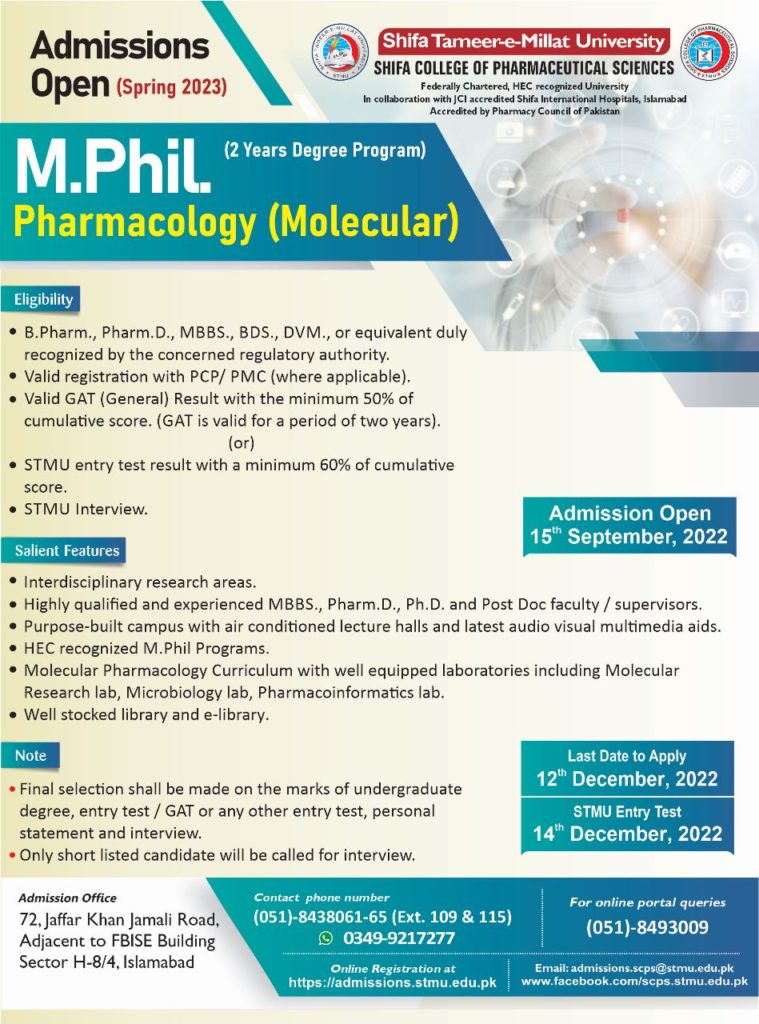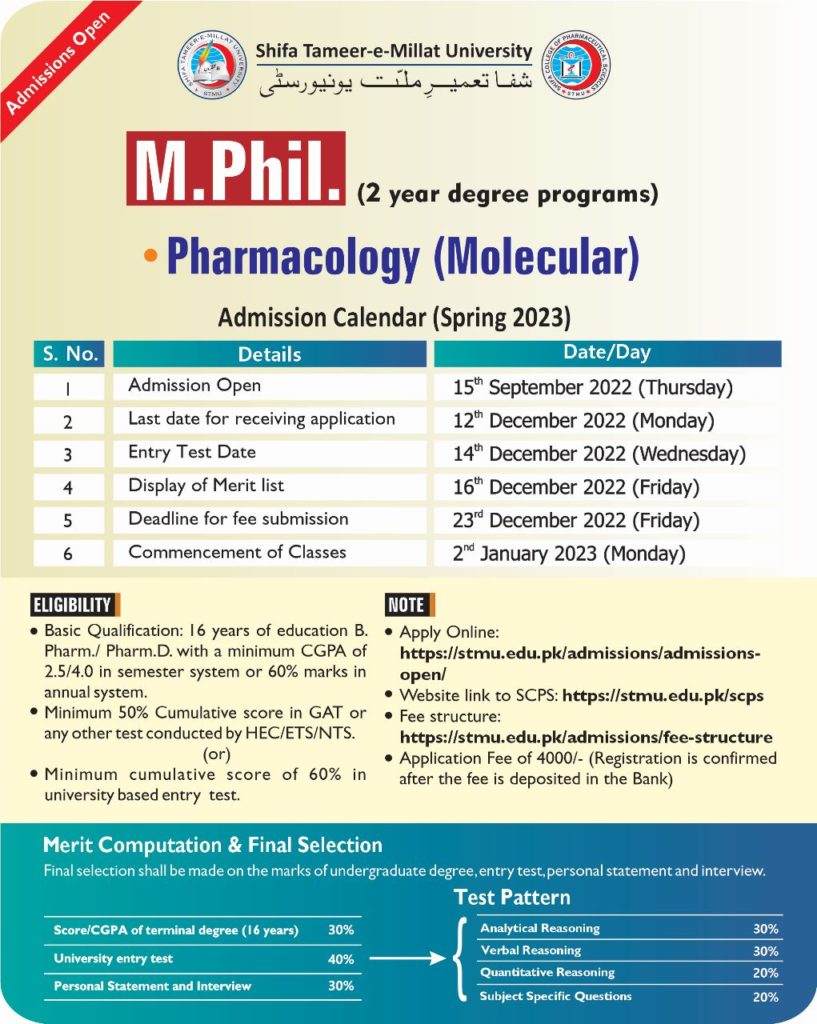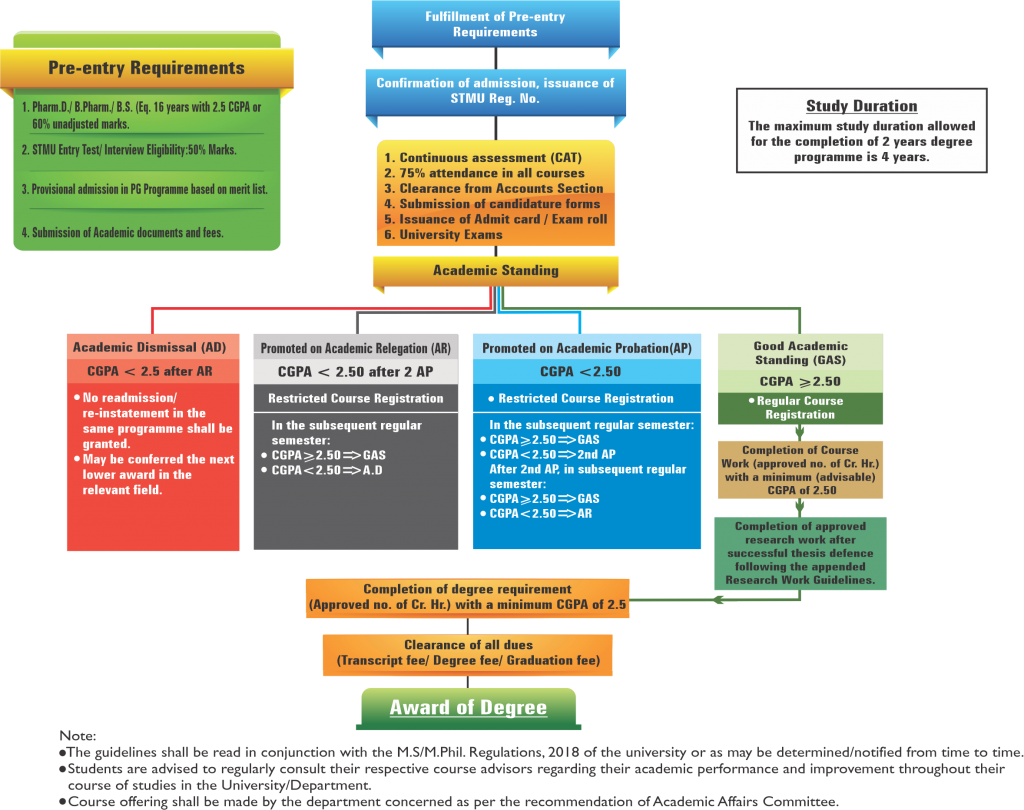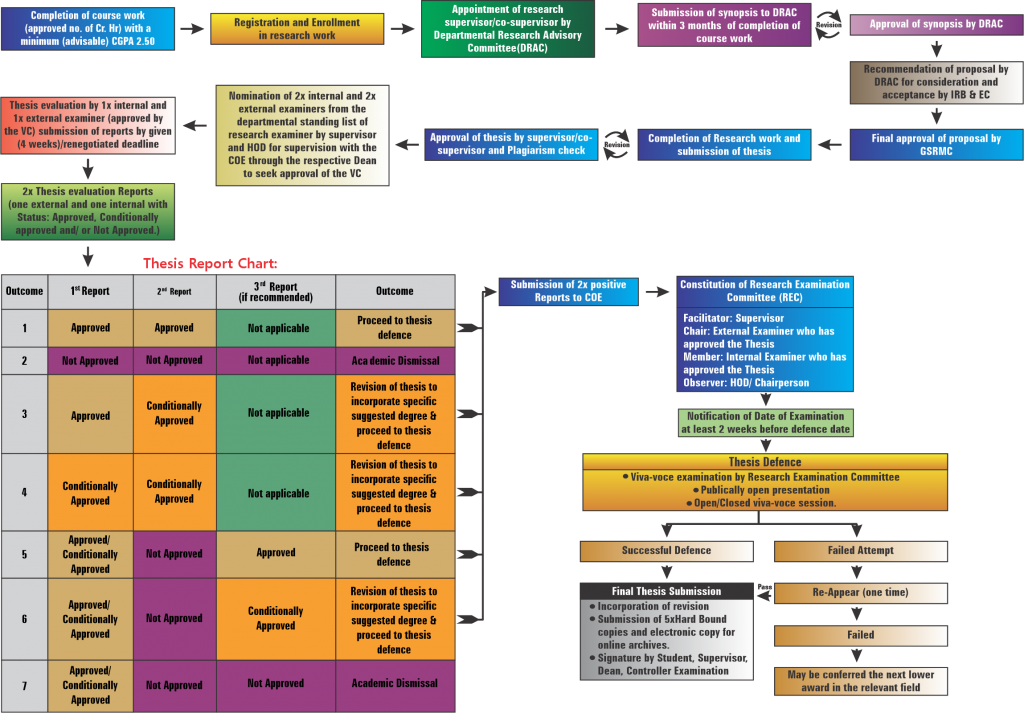M.Phil. Clinical Pharmacy Practice
September 21, 2022Pharm. D ( Doctor of Pharmacy)
September 30, 2022

Admissions Query
[contact-form-7 id=”567″ title=”Contact @ Admissions”]
M. Phil Pharmacology (Molecular)
Introduction
Shifa College of Pharmaceutical Sciences is committed to bridging the gap between the basic and applied research in the field of pharmaceutical sciences. Innovative research programs have been developed in light of international guidelines and market-scope to add to the knowledge base and commercial value of pharmaceutical products. M.Phil. Pharmacology (Molecular) program at Department of Basic Medical Sciences, Shifa College of Pharmaceutical Sciences would provide the scholars an integrated, broad-based research training in the field of advanced pharmacology. The program intends to teach pharmacological approaches to integrate a variety of research methods incorporating the techniques and tools of molecular biology, electrophysiological studies on single cells and whole tissues, whole organism studies and human volunteer programs of study. This can lead to new drug discoveries, as well as a better understanding of the way in which the human body works.
The faculty members at Shifa College of Pharmaceutical Sciences have a broad range of research expertise spanning through the various phases of development of effective pharmacological interventions. Their expertise ranges from in vivo models development through to molecular pharmacology, and computational biology through to clinical application. The focus of the research would initially be focused on utilizing integrated physiological and pharmacological approaches with biochemical and molecular techniques to study disease states, underlying mechanisms of disease and drug actions, with a view to identifying novel mechanisms, therapeutic targets and agents with a clinical and translational focus.
Career opportunities for M.Phil. Pharmacology (Molecular) graduates
The M. Phil. Pharmacology (Molecular) program at Department of Basic Medical Sciences, Shifa College of Pharmaceutical Sciences has been designed to develop the research skills of the scholars based on a deeper understanding of the molecular mechanisms of disease and the potential interventional strategies. This unique program would help graduates to work as inter-disciplinary scientists in various fields including, but not limited to, pharmacology, molecular biology, biochemistry, microbiology, bioinformatics and computational biology. The graduates would be in better position to be potentially employed in the product management side of the pharmaceutical industry and pharmaceutical marketing of biopharmaceuticals. They can also serve as a liaison between for the industry, physicians and patients. The program will enable graduates to be able to work in the areas of clinical trials, regulatory affairs, patenting, manufacturing, sales and marketing and scientific writing. They would be eligible to find employment in hospitals, civil service (DRAP/ DTL), Ministry of Health, pharmaceutical industries, biotech companies, universities and research centers at both national and international level.
Scheme of Studies M.Phil. Pharmacology (Molecular)
|
First Semester |
||
|
Sr. No. |
Theory |
CH (s) |
|
1. |
Core course 1 |
3 |
|
2. |
Core course 2 |
3 |
|
3. |
Elective course 1 |
3 |
|
4. |
Elective course 2 |
3 |
|
Total |
12 |
|
|
Second Semester |
||
|
Sr. No. |
Theory |
CH (s) |
|
1. |
Core course 3 |
3 |
|
2. |
Core course 4 |
3 |
|
3. |
Elective course 3 |
3 |
|
4. |
Elective course 4 |
3 |
|
Total |
12 |
|
|
Third & Fourth Semesters |
|||
|
Course Code |
Module |
Course Title |
CH(s) |
|
PMRW 7006 |
Research |
Synopsis and research work |
6 |
|
PMRW 7016 |
Research |
Publication(s) and thesis |
6 |
|
Total Credit Hours |
12 |
||
|
List of Core Courses |
|||
|
Course Code |
Module |
Course Title |
CH(s) |
|
PPMC 6103 |
Theory |
Principles of Molecular Pharmacology |
3 |
|
PBCH 6043 |
Theory |
Molecular Bioinformatics |
3 |
|
PBST 6013 |
Theory |
Bio-statistics |
3 |
|
PRTM 6003 |
Theory |
Research Methodology |
3 |
|
List of Elective Courses |
|||
|
Course Code |
Module |
Course Title |
CH(s) |
|
PBCH 6053 |
Theory |
Cell Signaling |
3 |
|
PPMC 6113 |
Theory |
Pharmacogenetics |
3 |
|
PPMC 6123 |
Theory |
Modern Techniques in Basic Molecular Pharmacology |
3 |
|
PPMC 6133 |
Theory |
Fundamentals of Immunopharmacology |
3 |
|
PPMC 6143 |
Theory |
Neuroinflammation |
3 |
|
PPMC 6153 |
Theory |
Cancer Biology and Pharmacology |
3 |
|
PPMC 6163 |
Theory |
ANS Pharmacology |
3 |
|
PPMC 6173 |
Theory |
Kidney, CVS and Respiratory System Pharmacology |
3 |
|
LIST OF ADDITIONAL, NONCREDITED COURSES |
|
|
Course Code |
Course Title |
|
PNAT 6000 |
Research Ethics |
|
PNAT 6010 |
Teaching Methodologies |
|
PNAT 6020 |
Writing and Communications in Science |
|
PNAT 6030 |
Technopreneurship |
|
PROGRAM SUMMARY |
|
|
PG Program |
Credit Hours |
|
First Semester |
12 |
|
Second Semester |
12 |
|
Total Course Work |
24 |
|
Third & Fourth Semester |
12 |
|
Total Research |
12 |
|
Total CH (s) |
36 |
Guidelines to Earn a Postgraduate Degree

Research Work Guideline for Postgraduate Studies at STMU

